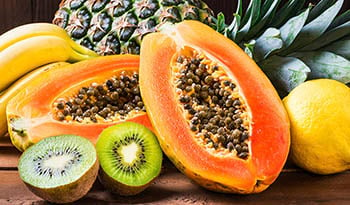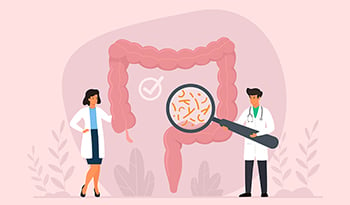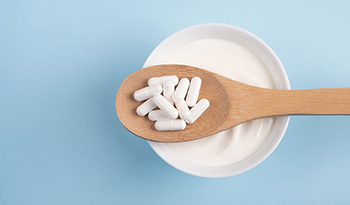Masalah Kesihatan Pencernaan Biasa+Cara Membetulkannya Secara Semulajadi

Hippocrates dengan bijak menyatakan, “Semua kesihatan bermula di usus.” Ia juga biasanya dikatakan, “Anda adalah apa yang anda makan,” tetapi ada banyak lagi yang perlu dipertimbangkan. Frasa yang lebih tepat mungkin: anda adalah apa yang anda boleh mencerna dan menyerap dari makanan anda.
Walaupun pemakanan berkualiti tinggi sangat penting untuk kesihatan yang optimum, ia hanya menyuburkan anda jika anda dapat mencerna dan menyerapnya dengan betul. Dalam artikel ini, anda akan menemui cara semula jadi untuk meningkatkan pencernaan dan kesihatan pencernaan.
Bagaimana Pencernaan Berfungsi
Sistem gastrousus sangat penting untuk memecah dan menyerap nutrien sambil melindungi tubuh daripada keadaan dalaman yang keras. Pencernaan bermula di mulut dengan proses mekanikal seperti mengunyah, yang mengaktifkan enzim dalam air liur. Makanan kemudian bergerak ke perut, di mana ia bercampur dengan asid hidroklorik dan pepsin, membentuk chyme. Chyme bergerak melalui usus kecil, berinteraksi dengan rembesan dari pankreas, hati, dan pundi hempedu. Pankreas menghasilkan enzim penting yang membantu pencernaan lemak, kanji, dan protein. Fungsi enzim yang betul adalah penting untuk penyerapan nutrien dan kesihatan pencernaan keseluruhan.
Masalah Kesihatan Pencernaan Umum dan Penyelesaian Semulajadi
Kesihatan pencernaan adalah aspek penting dalam kesejahteraan keseluruhan, tetapi ramai orang bergelut dengan masalah pencernaan biasa. Mari kita lihat lebih dekat beberapa masalah kesihatan pencernaan biasa ini dan terokai cara semula jadi untuk mengatasinya:
- Kekurangan asid perut
- Kerengsaan gastrik dan esofagus
- Gas dan kembung
- Sindrom usus yang mudah marah
- Sembelit
- Dysbiosis
1. Kekurangan asid perut
Walaupun hiperasiditi sering dibincangkan, asid perut rendah (hipoklorhidria) adalah penyebab gangguan pencernaan yang lebih kerap, terutama ketika kita berusia. Penyelidikan menunjukkan bahawa lebih daripada separuh orang berusia lebih dari 60 tahun mempunyai rembesan asid hidroklorik gastrik (HCL) yang tidak mencukupi, yang membawa kepada masalah pencernaan seperti kembung, bersendawa, dan kembung perut selepas makan. Tanpa HCL yang mencukupi, proses pencernaan terganggu.
Banyak gejala dan tanda menunjukkan gangguan rembesan asid gastrik termasuk:
- Kembung, bersendawa, terbakar, dan kembung perut dalam masa 30 minit selepas makan
- Rasa kenyang hampir sejurus selepas makan
- Masalah pencernaan, cirit-birit, atau sembelit
- Alahan makanan berbilang
- Mual selepas mengambil suplemen
- Gatal-gatal di sekitar rektum
- Kuku yang lemah, mengelupas, dan retak
- Saluran darah melebar di pipi dan hidung
- Kekurangan zat besi
- Parasit usus kronik atau flora yang tidak normal
- Makanan yang tidak dicerna dalam najis
- Jangkitan candida kronik
- Gas saluran pencernaan atas
Jika anda mengalami masalah pencernaan ini, suplemen HCL mungkin menjadi penyelesaiannya. Mengikuti kaedah cabaran HCL dapat membantu menentukan dos optimum untuk meningkatkan pencernaan.
2. Kerengsaan gastrik dan esofagus
Pedih ulu hati, refluks, dan ketidakselesaan perut atas adalah gejala khas penyakit refluks gastroesophageal (GERD), gangguan pencernaan yang dicirikan oleh aliran balik kandungan perut ke esofagus.
Pencetus biasa termasuk merokok, makanan goreng, alkohol, kafein, dan makan berlebihan. Anehnya, kekurangan asid perut atau enzim pencernaan juga boleh menyebabkan refluks dengan membiarkan makanan tinggal di perut terlalu lama, meningkatkan tekanan gastrik.
Ubat semulajadi untuk mengurangkan masalah kesihatan pencernaan ini termasuk:
- Suplemen HCL untuk asid perut rendah
- Enzim pencernaan untuk gas dan kembung lebih daripada 30 minit selepas makan
- Antasid semulajadi seperti magnesium sitrat untuk pedih ulu hati sekali-sekala
- Terapi rakit alginat untuk menyekat refluks gastrik
Terapi Rakit Alginat
Alginat, atau asid alginik, adalah serat makanan daripada alga coklat yang dapat menyerap 200-300 kali beratnya dalam air, menjadikannya agen gel semula jadi. Apabila digabungkan dengan kalsium karbonat, ia membentuk rakit yang berkesan menghalang refluks gastrik ke dalam esofagus.
Alginat membentuk gel lentur dalam persekitaran berasid perut, di mana ia bergabung dengan kalsium karbonat untuk menghasilkan gelembung karbon dioksida yang membantunya terapung. Rakit busa ini boleh bertahan sehingga empat jam, sebahagiannya dicerna ketika bergerak melalui saluran usus seperti serat makanan. Alginate adalah rawatan yang selamat dan berkesan untuk refluks, dengan produk seperti Life Extension's Esophageal Guardian dan Enzymedica's Heartburn Relief menggunakan bahan ini.
Kerengsaan Perut
Kerengsaan perut, berbeza dari refluks, ditandai dengan kesakitan dan gangguan pencernaan, sering dikaitkan dengan bakteria Helicobacter pylori sehingga 90% kes. Dua ubat semulajadi telah menunjukkan janji:
- Mastic gum, yang telah menunjukkan keberkesanan terhadap H. pylori, dengan 77% peserta dalam kajian mengalami kelegaan gejala ketika mengambil 350 mg tiga kali sehari selama tiga minggu.
- Licorice Deglycyrrhizinated (DGL), yang melindungi dan menyembuhkan lapisan perut tanpa menaikkan tekanan darah. DGL juga boleh menghalang pertumbuhan H. pylori; mengambil satu atau dua tablet kunyah 20 minit sebelum makan selama 8 hingga 16 minggu disyorkan untuk penyembuhan.
3. Gas dan kembung
Gas kronik dan kembung adalah antara aduan pencernaan yang paling biasa, sering dikaitkan dengan diet gula tinggi, intoleransi makanan, atau pengambilan karbohidrat yang boleh ditapai (FODMAP). Menyimpan buku harian makanan untuk mengesan kembung selepas makan boleh membantu mengenal pasti makanan yang menyinggung perasaan. Walau bagaimanapun, pengeluaran enzim pencernaan yang tidak mencukupi adalah penyebab yang kerap.
Dalam sesetengah kes, suplemen enzim boleh menjadi lebih berkesan daripada menghilangkan makanan tertentu. Sebagai contoh, mengambil alpha-galactosidase, enzim yang memecah FODMAP, dapat mengurangkan gejala gas dan kembung dengan ketara. Selain itu, formula enzim pencernaan yang komprehensif dapat membantu menangani masalah pencernaan biasa ini.
Adalah penting untuk memasukkan makanan yang meningkatkan fungsi pencernaan. Ini termasuk makanan yang ditapai seperti kimchi, sauerkraut, dan miso, herba yang menenangkan seperti halia dan pudina, dan makanan kaya enzim seperti betik dan nanas. Makanan hijau seperti spirulina dan chlorella juga bermanfaat.
4. Intoleransi Laktosa
Ramai orang mengalami intoleransi laktosa, keadaan di mana tubuh tidak dapat mencerna laktosa, gula yang terdapat dalam tenusu. Ini membawa kepada gejala pencernaan seperti gas, kembung, dan cirit-birit. Menambah dengan laktase, enzim yang bertanggungjawab untuk memecahkan laktosa, dapat mengurangkan gejala ini dan meningkatkan kesihatan pencernaan keseluruhan.
5. Sindrom Irritasi Usus (IBS)
Sindrom usus iritasi (IBS) adalah gangguan pencernaan biasa yang mempengaruhi fungsi sistem pencernaan, yang membawa kepada gejala seperti:
- Perut kembung dan sakit
- Gas dan perubahan dalam pergerakan usus (sembelit atau cirit-birit)
- Kebimbangan atau kemurungan
Terdapat lima punca utama IBS: tekanan, pengambilan serat makanan yang tidak mencukupi, intoleransi makanan atau alergi, makanan terlalu tinggi gula, dan kekurangan enzim pencernaan. Penyebab ini juga dikaitkan dengan ciri asas dalam IBS yang dikenali sebagai pertumbuhan bakteria usus kecil (SIBO). Mempunyai bakteria yang salah tumbuh di usus kecil menghasilkan gejala IBS serta masalah lain seperti kabut otak, keletihan, sakit sendi, dan masalah kulit.
Menguruskan gejala IBS memerlukan menangani sebab-sebab utama ini. Meningkatkan serat makanan, seperti gusi guar yang dihidrolisis sebahagiannya, dapat membantu mengekalkan keteraturan usus, sementara makanan tambahan seperti berberine atau minyak pudina bersalut enterik menawarkan kelegaan tambahan.
Juga, kerana SIBO sering dikaitkan dengan peningkatan kebolehtelapan usus, iaitu usus bocor. Dua bantuan pemakanan kritikal untuk usus bocor sebagai tambahan kepada yang di atas adalah L-glutamin dan N-acetylcysteine. Nutrien ini membantu menyembuhkan sel-sel usus daripada kerosakan yang membolehkan mereka melaksanakan fungsi penghalang mereka.
6. Sembelit
Sembelit adalah salah satu masalah pencernaan yang paling lazim, yang mempengaruhi banyak individu kerana kekurangan serat makanan, penghidratan yang tidak mencukupi, atau senaman yang tidak mencukupi. Untuk mengurangkan sembelit:
- Meningkatkan pengambilan serat anda kepada 25-30 gram sehari
- Makan buah-buahan kaya serat seperti epal, pir, dan kiwi
- Tetap terhidrasi dan terlibat dalam aktiviti fizikal biasa
Menggabungkan suplemen serat, seperti psyllium atau gusi guar yang sebahagiannya terhidrolisis, juga dapat meningkatkan keteraturan usus.
Probiotik: Tambahan Terbaik untuk Pencernaan
Apakah Probiotik?
Probiotik merujuk kepada bakteria bermanfaat yang terdapat di saluran usus manusia. Selama beribu-ribu tahun, manusia telah mengambil makanan fermentasi yang mengandungi probiotik. Ini termasuk bukan sahaja bakteria kering beku dalam kapsul dari kedai makanan kesihatan tetapi juga makanan seperti keju, yogurt, sauerkraut, dan kefir. Mikroorganisma utama dalam kebanyakan suplemen probiotik adalah Lactobacilli dan Bifidobacteria.
Penyelidikan Mengenai Probiotik
Penggunaan probiotik disokong oleh penyelidikan klinikal yang besar, dengan hampir 1,000 kajian manusia yang terkawal plasebo. Walaupun banyak penyelidikan ini telah memberi tumpuan kepada mempromosikan kesihatan gastrointestinal dan menyokong fungsi imun, ia juga menyokong probiotik untuk pelbagai matlamat kesihatan lain.
Probiotik dapat memperbaiki persekitaran gastrointestinal, menjadikannya kurang ramah kepada mikrob berbahaya. Banyak organisma yang tidak diingini perlu mengikat lapisan gastrointestinal untuk menjajah dengan berkesan. Strain probiotik tertentu boleh melekat pada epitel dan bertindak sebagai “penghalang penjajahan,” menghalang bakteria dan ragi berbahaya daripada melekat pada lapisan usus.
Lebih 500 kajian buta ganda telah menyiasat probiotik dalam dysbiosis gastrointestinal, yang merupakan gangguan pada mikrobioma usus. Dysbiosis sering berlaku kerana rembesan pencernaan terjejas, pengambilan gula yang berlebihan, penggunaan antibiotik, dan perjalanan ke negara yang belum maju, yang menyebabkan gas, kembung, dan pergerakan usus yang tidak teratur. Probiotik boleh menjadi sangat berkesan untuk gas dan kembung yang berkaitan dengan dysbiosis.
Jenis Probiotik
Suplemen probiotik terbaik untuk gas, kembung, dan ketidakteraturan usus adalah Bacillus coagulans menurut analisis terbaru mengenai ujian klinikal yang diterbitkan telah direka untuk memberikan urutan kedudukan relatif keberkesanan probiotik yang berbeza untuk isu-isu biasa ini. Keputusan menunjukkan bahawa probiotik Bacillus coagulans mempunyai kebarangkalian tertinggi untuk menghasilkan peningkatan kerana lebih daripada 60% subjek mempunyai kelegaan sepenuhnya gas dan kembung mereka jika mereka mengambil probiotik ini. Ia juga berguna untuk IBS.
Dos Probiotik
Dos suplemen probiotik paling sering berdasarkan jumlah organisma hidup yang terdapat dalam produk yang disebut dalam CFU (unit pembentuk koloni) pada masa tamat tempoh. Untuk kesihatan umum, hasil terbaik paling sering dicapai dengan mengambil antara 5 bilion dan 30 bilion CFU setiap hari.
Faktor Gaya Hidup Yang Mempengaruhi Pencernaan
Fungsi pencernaan sering terkena tekanan. Dalam keadaan tertekan, tubuh diprogramkan untuk mengalihkan darah dan tenaga dari saluran pencernaan yang memihak kepada otot rangka dan otak. Itulah sebabnya paling sering tanda-tanda pertama terlalu banyak tekanan dalam hidup kita adalah masalah dengan pencernaan. Adalah penting untuk fungsi pencernaan untuk belajar bagaimana menenangkan badan dan minda.
Aktiviti fizikal biasa adalah penghalang tekanan semula jadi yang hebat dan bebas kos. Ia tidak perlu melakukan senaman yang berat. Latihan mudah yang menggalakkan kesihatan usus dan keteraturan termasuk berjalan dan yoga.
Akhir sekali, untuk membantu proses pencernaan anda, cuba makan dalam keadaan santai dan persekitaran. Perhatikan pernafasan anda. Fokus pada bernafas perlahan-lahan dengan diafragma anda semasa anda makan. Dan kunyah dengan teliti. Langkah-langkah mudah ini kadang-kadang boleh menghasilkan kesan dramatik.
Dengan memahami dan menangani masalah kesihatan pencernaan biasa ini, anda boleh mengambil langkah-langkah untuk meningkatkan kesihatan usus dan kesejahteraan keseluruhan secara semula jadi.
Rujukan:
- Schubert ML. Anatomi fungsional dan fisiologi rembesan gastrik. Curr Opin Gastroenterol. 2015 Nov; 31 (6): 479-85.
- Howden CW, Hunt RH. Hipochlorhydria spontan pada manusia: kemungkinan penyebab dan akibat. Penyakit Pencernaan 1986; 4 (1) :26—32.
- Leiman DA, Riff BP, Morgan S. Terapi alginat adalah rawatan yang berkesan untuk gejala GERD: tinjauan sistematik dan meta-analisis. Disember Esofagus 2017; 30 (5): 1—9.
- Mandel KG, Daggy BP, Brodie DA, Jacoby HI. Artikel semakan: formulasi rakit alginat dalam rawatan pedih ulu hati dan refluks asid. Farmakologi dan Terapeutik Alimentari 2000:14 (6): 669-90.
- Dabos KJ, Sfika E, Vlatta LJ, Frantzi D, Amygdalos GI, dan Giannikopoulos G. Adakah Chios mastic gum berkesan dalam rawatan dispepsia fungsional? Percubaan terkawal plasebo dua buta rawak prospektif. J Etnofarmakol 2010; 127 (2): 205-209.
- Raveendra KR, Jayachandra, Srinivasa V, et al. Ekstrak Glycyrrhiza glabra (GutGard) Mengurangkan Gejala Dispesia Fungsional: Kajian Terkawal Plasebo Rawak, Buta Berganda. Pelengkap Berasaskan Evid Alternat Med. 2012; 2012:216970.
- Tuck CJ, Taylor KM, Gibson PR, Barrett JS, Muir JG. Peningkatan gejala dalam gejala usus yang mudah marah dengan pengambilan galaktooligosakarida dikurangkan oleh rawatan [alpha] -galactosidase. Aku. J. Gastroenterol. 2018; 113:124.
- Ianiro G, Pecere S, Giorgio V, et al. Suplemen Enzim Pencernaan dalam Penyakit Gastrointestinal. Metab Dadah Curr 2016; 17 (2): 187-93
- Roxas M. Peranan suplemen enzim dalam gangguan pencernaan. Altern. Med. Pendeta 2008; 13 (4): 307—314.
- Szilagyi A, Ishayek N. Intoleransi Laktosa, Penghindaran Tenusu, dan Pilihan Rawatan. Nutrien. 2018 15 Dis; 10 (12).
- Di Costanzo M, Berni Canani R. Intoleransi Laktosa: Kesalahpahaman Biasa. Ann Nutr Metab 2018; 73 Tambahan 4:30-37.
- Corgneau M, Scher J, Ritie-Pertusa L, et al. Kemajuan terkini mengenai intoleransi laktosa: Ambang toleransi dan jawapan yang ada sekarang. Sains Makanan Crit Rev. 2017 Oktober 13; 57 (15): 3344-3356.
- Yasukawa Z, Inoue R, Ozeki M, Okubo T, Takagi T, Honda A, Naito Y. Kesan Penggunaan Berulang Gum Guar Sebahagiannya Terhidrolisis pada Ciri-ciri Tinja dan Mikrobiota Usus: Percubaan Klinikal Rawak, Buta Dua, Terkawal Plasebo, dan Kumpulan Selari. Nutrien. 2019 10 Sep; 11 (9): 2170.
- Chen C, Tao C, Liu Z, et al. Percubaan Klinikal Berberine Hydrochloride secara rawak pada Pesakit dengan Sindrom Irritasi Usus Dirit-Birit. Phytother Res. 2015 Nov; 29 (11): 1822-7.
- Hitam CJ, Yuan Y, Selinger CP, Camilleri M, Quigley EMM, Moayyedi P, Ford AC. Keberkesanan serat larut, ubat antispasmodik, dan neuromodulator usus dalam sindrom iritasi usus: tinjauan sistematik dan meta-analisis rangkaian. Lancet Gastroenterol Hepatol. 2020 Februari; 5 (2): 117-131.
- Achamrah N, Déchelotte P, Coëffier M. Glutamine dan peraturan kebolehtelapan usus: dari bangku ke sisi katil. Penjagaan Metab Curr Opin Clin Nutr 2017 Jan; 20 (1): 86-91.
- Hou Y, Wang L, Yi D, Wu G. N-acetylcysteine dan kesihatan usus: tumpuan pada mekanisme tindakannya. Front Biosci (Landmark Ed). 1 Jan 2015; 20 (5): 872-91.
- Pramanik S, Venkatraman S, Karthik P, Vaidyanathan VK. Kajian sistematik mengenai pencirian pemilihan dan pelaksanaan probiotik dalam kesihatan manusia. Bioteknologi Sains Makanan. 2023 10 Jan; 32 (4): 423-440.
- Zhang T, Zhang C, Zhang J, et al. Keberkesanan Probiotik untuk Sindrom Irritasi Usus: Kajian Sistematik dan Meta-Analisis Rangkaian. Sel Depan Menangkiti Mikrobiol. 2022 1 Apr; 12:859967.
- Gupta AK, Maity C. Keberkesanan dan keselamatan Bacillus coagulans LBSC dalam sindrom iritasi usus: Kajian klinikal prospektif, intervensi, rawak, buta dua kali, terkawal plasebo [CONSORT Mematuhi]. Perubatan (Baltimore). 2021 22 Jan; 100 (3): e23641.
PENAFIAN:Hab Kesejahteraan ini tidak berhasrat untuk memberikan diagnosis...
















































































 Kandungan
Kandungan














